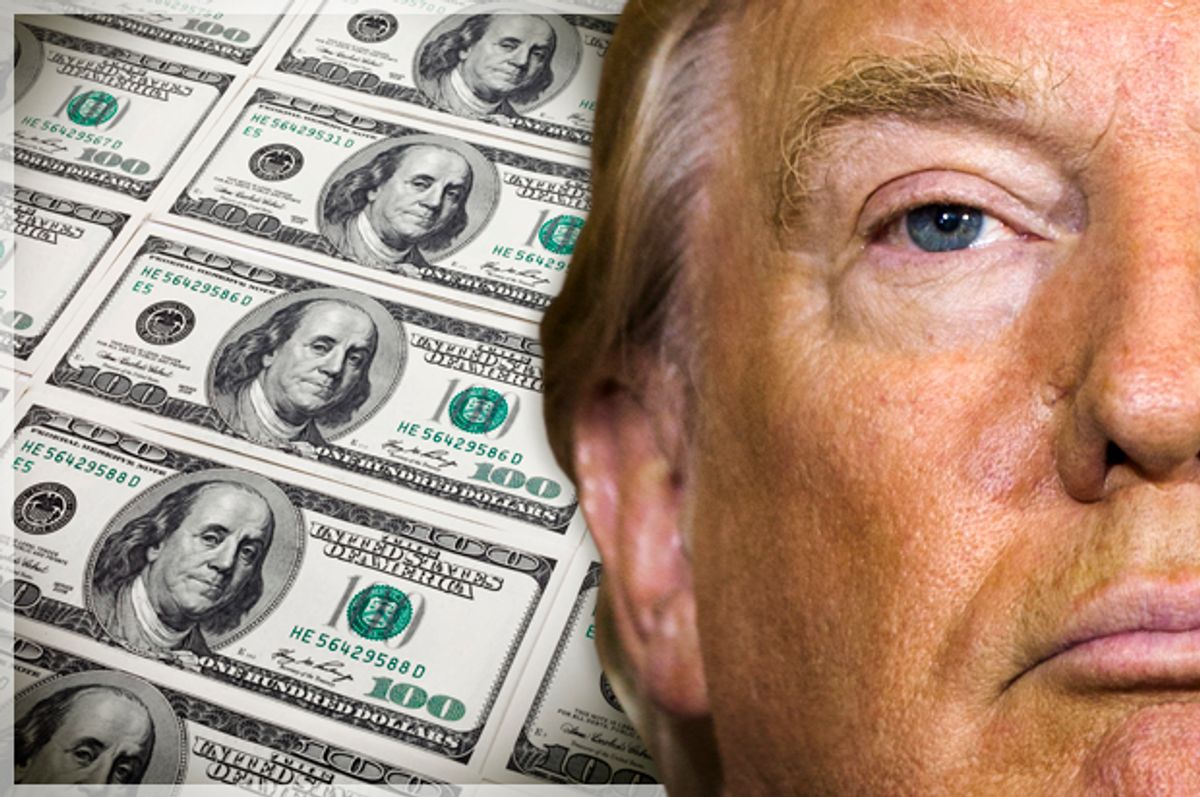This week has shed more light into the various conflicts of interest that have plagued President-elect Donald Trump as he prepares to begin his new term of office. There's no point in delaying, let's dive right in.
A report came out that Trump's close adviser and son-in-law, Jared Kushner, met with a problematic Chinese investor in November.
Although Jared Kushner claims to be taking steps to divest himself from his real estate empire, The New York Times reported on Saturday that Kushner met with Wu Xiaohui, chairman of Anbang Insurance Group (which owns the Waldorf Astoria hotel, among other properties), shortly after his father-in-law's election. The goal was to strike a joint venture to redevelop 666 Fifth Avenue, a keystone of Kushner's real estate holdings. All of this occurred in spite of the worries of Obama administration officials who review foreign investments about potential national security risks.
Donald Trump met with another billionaire real estate developer — who co-owns two of his buildings.
Trump met on Friday with Steven Roth, a fellow real estate billionaire who co-owns two of Trump's buildings. Roth is the CEO of Vornado Realty Trust and owns 70 percent of a Trump building in San Francisco and 70 percent of another Trump building on Sixth Avenue in midtown Manhattan. He was seen celebrating with Trump after the Republican won the New York primary in April and was later named as one of his campaign advisers.
As of Monday, the conflicts of interest that Trump did divest himself from amounted to less than $400,000.
Even if Trump is only a multimillionaire rather than a billionaire, as some suspect is the case, it's still safe to say that losing less than $400,000 from his real estate empire is close to inconsequential for him. Yet as Bloomberg reported on Monday, the combined revenue from the projects that Trump has left amounted to only $323,150 in 2015 and the first half of 2016.
Trump himself still owns or controls roughly 500 companies within the Trump Organization.
Despite the disturbing prospect that a sitting president may pursue policies motivated by a desire to personally profit from them, Trump has continued to retain ownership or substantial levels of control over approximately 500 companies within the Trump Organization, according to an Associated Press report on Monday. This makes it all the more troubling that, as of Tuesday, the value of Trump's brand name had risen to all-time highs.
Trump's debts may be $1.5 billion higher than he has previously suggested.
When Trump declared his debt to the Federal Elections Commission, he acknowledged $315 million owed to 10 separate lenders. If businesses in which Trump owns at least a 30 percent stake are taken into account, however, the president-elect has an additional $1.5 billion owed to more than 150 institutions, according to a Wall Street Journal report from last week.
His press conference about divesting turned into a dumpster fire.
Although the president-elect repeatedly promised that he would unveil a plan for addressing his conflicts of interest during his Wednesday press conference, experts agree that the program he came up with was weak sauce. "This isn’t the way the presidency has worked since Congress passed the Ethics in Government Act in 1978 in the immediate aftermath of the Watergate scandal," said Walter Shaub, Director of the U.S. Office of Government Ethics, at a forum organized by the Brookings Institute on Wednesday.
Aside from rolling out an inadequate plan, Trump also claimed that "the only one that cares about my tax returns are the reporters" and bragged about turning down a $2 billion deal with a real estate developer in the United Arab Emirates — which, of course, begs the question of why a president-elect who isn't supposed to be thinking about his companies would have made any corporate decisions in the first place.
Nothing describes his divestment plan more than the folders that were displayed at the press conference — an empty prop.
The pages are blank. pic.twitter.com/agLqnBTjrg
— Mikey Neumann (@mikeyface) January 12, 2017



Shares